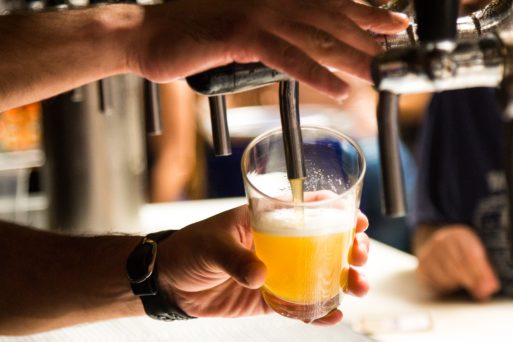Researchers from the University of California San Diego School of Medicine have found that daily, moderate alcohol intake may support cognitive health into old age. The study, published in the most recent issue of the Journal of Alzheimer’s Disease, suggests that older adults who drink alcohol on a daily basis are more likely to live to age 85 without dementia or other cognitive issues than non-drinkers.
 The researchers assessed the alcohol intake of study participants from 1984 to 1987 through a questionnaire. They then tested participants’ cognitive function every four years between 1988 and 2009. Eighty-eight percent of the participants reported some current alcohol intake. Forty-nine percent reported a moderate amount of alcohol intake, and 48 percent reported drinking nearly every day. Compared to the non-drinking participants, moderate and heavy drinkers had better odds of surviving to age 85 without cognitive impairment.
The researchers assessed the alcohol intake of study participants from 1984 to 1987 through a questionnaire. They then tested participants’ cognitive function every four years between 1988 and 2009. Eighty-eight percent of the participants reported some current alcohol intake. Forty-nine percent reported a moderate amount of alcohol intake, and 48 percent reported drinking nearly every day. Compared to the non-drinking participants, moderate and heavy drinkers had better odds of surviving to age 85 without cognitive impairment.
Previous studies have examined the correlation between longevity and alcohol intake. However, “This study is unique,” said senior author Linda McEvoy, Ph.D., an associate professor at UC San Diego School of Medicine, “because we considered men and women’s cognitive health at late age and found that alcohol consumption is not only associated with reduced mortality, but with greater chances of remaining cognitively healthy into older age.”
The categories of participants’ drinking consumption were based on guidelines created by the National Institute on Alcohol Abuse and Alcoholism. The Institute defines moderate drinking as one alcoholic beverage a day for women of any age and men over 65 years old. That changes to two drinks a day for men under the age of 65. For women of any age and men over the age of 65, the NIAAA defines heavy drinking as three alcoholic beverages a day and four drinks a day for men under 65. It considers drinking more than these amounts excessive.
“It is important to point out that there were very few individuals in our study who drank to excess, so our study does not show how excessive or binge-type drinking may affect longevity and cognitive health in aging,” Dr. McEvoy said.
Results Are Not Absolute
The researchers stress that they are not suggesting that drinking alcohol will prolong your life and improve cognitive function. Alcohol intake is generally associated with higher education and income levels. That, in turn, is associated with lower rates of smoking and mental illness and greater access to health care.
One advantage of this study, however, is that the data came from a homogeneous population in a geographically well-defined area. Every one of the 1,344 participants are from Rancho Bernardo, a middle-to-upper-middle-class suburb in San Diego County. More than 99 percent of them are Caucasian with at least some level of college education.
“This study shows that moderate drinking may be part of a healthy lifestyle to maintain cognitive fitness in aging,” said lead author Erin Richard, a graduate student in the Joint San Diego State University/UC San Diego Doctoral Program in Public Health.
She also mentioned that people should not consider the results of the study to be a recommendation to start drinking alcohol. But as life expectancy continues to grow, identifying factors that can contribute to healthy longevity are increasingly important. And if drinking a glass of wine or two a day can help maintain cognitive function, many of us will welcome the idea.

 Daily, Moderate Alcohol Intake Could Contribute to Cognitive Health in Old Age
Daily, Moderate Alcohol Intake Could Contribute to Cognitive Health in Old Age


 First the Wealth Gap, Now the U.S. Has a Growing Health Gap
First the Wealth Gap, Now the U.S. Has a Growing Health Gap
 How to Comfort A Dying Loved One
How to Comfort A Dying Loved One
 Our Annual Seven Holiday Gifts for Someone Who Is Grieving, 2024 Edition
Our Annual Seven Holiday Gifts for Someone Who Is Grieving, 2024 Edition














